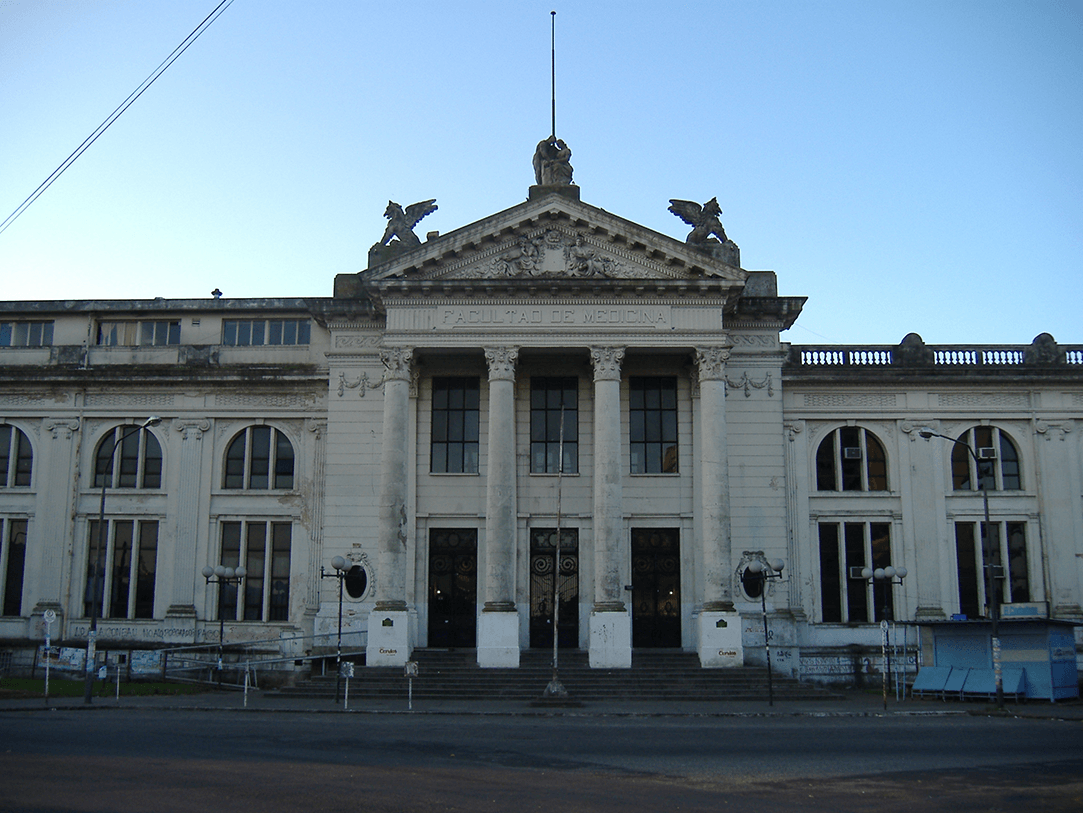2016 Academic Seminars
Civil Resistance
Forman Christian College, Lahore, Pakistan
September 26-27, 2016
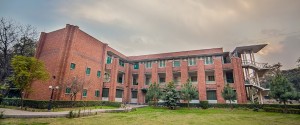 This seminar aims to facilitate learning and teaching on basic themes in civil resistance studies. This course provides a foundation knowledge on civil resistance, including its history and commonly employed strategies. It discusses topics such as Pakistan’s nonviolent history, Abdul Ghaffar Khan, nonviolent strategies against violent extremism, and the role of Islam and civil resistance. The course examines challenges and opportunities for nonviolent mobilization and campaigns, drawing on lessons from the region. Finally, the course discusses how to teach and train young people in the field of civil resistance.
This seminar aims to facilitate learning and teaching on basic themes in civil resistance studies. This course provides a foundation knowledge on civil resistance, including its history and commonly employed strategies. It discusses topics such as Pakistan’s nonviolent history, Abdul Ghaffar Khan, nonviolent strategies against violent extremism, and the role of Islam and civil resistance. The course examines challenges and opportunities for nonviolent mobilization and campaigns, drawing on lessons from the region. Finally, the course discusses how to teach and train young people in the field of civil resistance.
Civil Resistance: The Study of Nonviolent Power and Organized People
Hekima College, Nairobi, Kenya
September 20-22, 2016
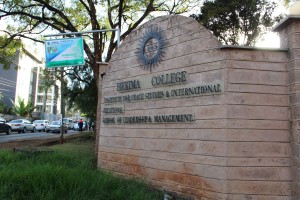 This seminar aims to provide a general introduction to civil resistance, examining its history and common misconceptions. It discusses movement formation as well as effective strategies and tactics commonly used in nonviolent campaigns. Other topics include mobilization, repression & backfire, and the roles of women and external actors. A session in the program also included case studies while looking into contemporary nonviolent campaigns in West Africa and the challenges, opportunism, and impact associated with them.
This seminar aims to provide a general introduction to civil resistance, examining its history and common misconceptions. It discusses movement formation as well as effective strategies and tactics commonly used in nonviolent campaigns. Other topics include mobilization, repression & backfire, and the roles of women and external actors. A session in the program also included case studies while looking into contemporary nonviolent campaigns in West Africa and the challenges, opportunism, and impact associated with them.
Civil Resistance Studies: Driving Ideas, Findings, Cases and Research Agenda
University of Brasilia, Brazil
August 22-24, 2016
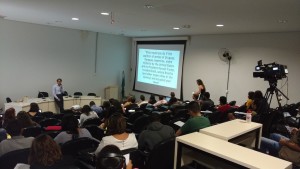 This is a multidisciplinary seminar designed to facilitate learning on the part of participants. The goal of the course is to offer an introduction to the field of civil resistance studies and analyze the driving ideas behind it, discussing various case studies, tactics, and research materials.
This is a multidisciplinary seminar designed to facilitate learning on the part of participants. The goal of the course is to offer an introduction to the field of civil resistance studies and analyze the driving ideas behind it, discussing various case studies, tactics, and research materials.
Civil Resistance as an Applied Field of Academic Inquiry
FLASCO, Quito, Ecuador
June 9-11, 2016
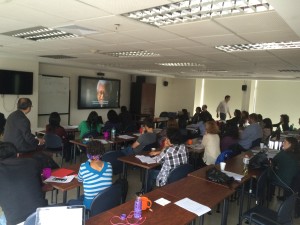 This course provides general introduction to the field of civil resistance, explore different understandings of political power in society with regard to the practice of organized, mass-based civil resistance and discuss why civil resistance can be an effective force for bringing about a significant political change.
This course provides general introduction to the field of civil resistance, explore different understandings of political power in society with regard to the practice of organized, mass-based civil resistance and discuss why civil resistance can be an effective force for bringing about a significant political change.
Civil Resistance: The Study of Nonviolent Power and Organized People
Leeds Beckett University
April 18-20, 2016
 This is a multidisciplinary course whose goal is to offer an introduction to the field of civil resistance studies and provide an overview of generic but also specific analytical concepts and empirical themes in civil resistance.
This is a multidisciplinary course whose goal is to offer an introduction to the field of civil resistance studies and provide an overview of generic but also specific analytical concepts and empirical themes in civil resistance.
Civil Resistance: Nonviolent Force for Democracy and Justice
University of Toronto
February 27-28, 2016
 This course is designed to provide an in-depth and multidisciplinary perspective on the dynamic of civilian-based movements and campaigns that defend and obtain basic rights and justice, halt political oppression and facilitate democratic transitions and accountable governance.
This course is designed to provide an in-depth and multidisciplinary perspective on the dynamic of civilian-based movements and campaigns that defend and obtain basic rights and justice, halt political oppression and facilitate democratic transitions and accountable governance.
2015 Academic Seminars
ICNC Academic Seminar at University of Arizona, Tuscon
University of Arizona, Tuscon
September 30-October 2, 2015
 This three-day course aims to introduce participants and speakers to the fundamentals of civil resistance, including the historical record of civil resistance, its basic concepts, and cases. Beyond delving into why and how civil resistance works and the strategies and tactics of civil resistance that underlie successful movements, this seminar also explores topics such as repression and violent flanks, key lessons from nonviolent revolutions that did not succeed, and research and teaching on civil resistance, amongst other topics.
This three-day course aims to introduce participants and speakers to the fundamentals of civil resistance, including the historical record of civil resistance, its basic concepts, and cases. Beyond delving into why and how civil resistance works and the strategies and tactics of civil resistance that underlie successful movements, this seminar also explores topics such as repression and violent flanks, key lessons from nonviolent revolutions that did not succeed, and research and teaching on civil resistance, amongst other topics.
Download event program
IPSI/SAIS Bologna, Italy
Johns Hopkins University-SAIS Bologna Center
July 9-10, 2015
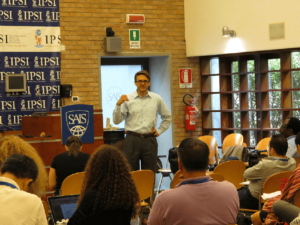 This course is designed to provide an in-depth and multi-disciplinary perspective on the dynamic of civilian-based movements and campaigns that defend and obtain basic rights and justice, halt political oppression and facilitate democratic transitions and accountable governance.
This course is designed to provide an in-depth and multi-disciplinary perspective on the dynamic of civilian-based movements and campaigns that defend and obtain basic rights and justice, halt political oppression and facilitate democratic transitions and accountable governance.
The course examined the nature and attributes of civil resistance, its historical record and effectiveness when compared to that of violent insurgency, factors that determine successes as well as failures of civil resistance, common misconceptions and framing of civil resistance with a specific emphasis on skills, strategic planning and tactics vis-a-vis structural externalities, long-term effects of civil resistance on democratic transformation and sustainability and new, emerging areas of civil resistance studies.
Download event program
Understanding Civil Resistance: Nonviolent Struggles for Democracy and Justice
European Humanities University
May 14-16, 2015
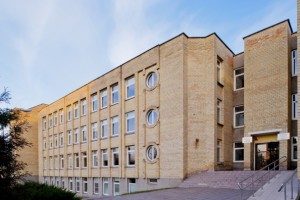 This three-day course provides for its EHU participants a general introduction to the field of civil resistance, including a definition of political power, and an explanation of why nonviolent struggles were ignored historically and what accounts for the effectiveness of nonviolent actions. Referring to a number of examples from the last few decades, this course looks at how civil resistance movements emerge and sustain themselves, as well as the strategic planning, campaigning, and tactical choices that are essential components of effective civil resistance. This course additionally discusses the subjects of nonviolent civilian defense by and for communities and nations, democratization and civil resistance, the role of external actors in civil resistance, and nonviolent discipline and radical flanks.
This three-day course provides for its EHU participants a general introduction to the field of civil resistance, including a definition of political power, and an explanation of why nonviolent struggles were ignored historically and what accounts for the effectiveness of nonviolent actions. Referring to a number of examples from the last few decades, this course looks at how civil resistance movements emerge and sustain themselves, as well as the strategic planning, campaigning, and tactical choices that are essential components of effective civil resistance. This course additionally discusses the subjects of nonviolent civilian defense by and for communities and nations, democratization and civil resistance, the role of external actors in civil resistance, and nonviolent discipline and radical flanks.
Download event program
Understanding Civil Resistance: Nonviolent Struggles for Democracy and Justice
University of Sarajevo
May 11-12, 2015
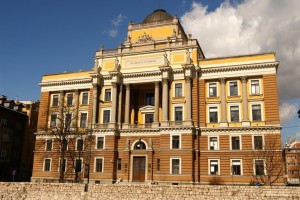 This intensive two day course is designed to introduce participants to how ordinary people are mobilizing and engaging in civil resistance as a force for reclaiming political power— whether to curb graft and abuse, increase government’s accountability, or force a repressive regime to yield. After introducing participants to the power and dynamics of civil resistance, this course highlights strategic dynamics of civil resistance struggles, tactical creativity, managing repression, amplifying backfire, and the impact of nonviolent movements on democratization.
This intensive two day course is designed to introduce participants to how ordinary people are mobilizing and engaging in civil resistance as a force for reclaiming political power— whether to curb graft and abuse, increase government’s accountability, or force a repressive regime to yield. After introducing participants to the power and dynamics of civil resistance, this course highlights strategic dynamics of civil resistance struggles, tactical creativity, managing repression, amplifying backfire, and the impact of nonviolent movements on democratization.
Download event program
2014 Academic Seminars
Civil Resistance: Its Dynamics, Effectiveness and Impact
Collegium Civitas
October 22, 2014
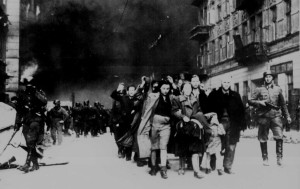 This course is designed to provide an in-depth and multi-disciplinary perspective on the dynamic of civilian-based movements and campaigns that defend and obtain basic rights and justice, halt political oppression and facilitate democratic transitions and accountable governance.
This course is designed to provide an in-depth and multi-disciplinary perspective on the dynamic of civilian-based movements and campaigns that defend and obtain basic rights and justice, halt political oppression and facilitate democratic transitions and accountable governance.
Download event program
Civil Resistance: The Study of Nonviolent Power and Organized People
Yale University
September 25-26, 2014
 The nonviolent popular uprisings during the ‘Arab Spring’ showed the relevance of civil resistance. Yet, strategic nonviolent conflict is not a new phenomenon. In fact, the use of civil resistance against undemocratic regimes and other illegitimate actors is prevalent over time and space. This seminar will explore the underlying concepts and dynamics of civil resistance, discuss its effectiveness, and how its tactics and strategies are applicable. It will also talk about how civil resistance facilitates defections from the regime’s pillars of support and how a violent flank impacts nonviolent movement. Finally, the seminar will also shed greater understanding on the interplay between civil resistance and third-party actors and role of nonviolent movements in negotiations and democratic transitions, among others.
The nonviolent popular uprisings during the ‘Arab Spring’ showed the relevance of civil resistance. Yet, strategic nonviolent conflict is not a new phenomenon. In fact, the use of civil resistance against undemocratic regimes and other illegitimate actors is prevalent over time and space. This seminar will explore the underlying concepts and dynamics of civil resistance, discuss its effectiveness, and how its tactics and strategies are applicable. It will also talk about how civil resistance facilitates defections from the regime’s pillars of support and how a violent flank impacts nonviolent movement. Finally, the seminar will also shed greater understanding on the interplay between civil resistance and third-party actors and role of nonviolent movements in negotiations and democratic transitions, among others.
Download event program
IPSI/SAIS Bologna
Johns Hopkins University-SAIS Bologna Center
July 24-25, 2014
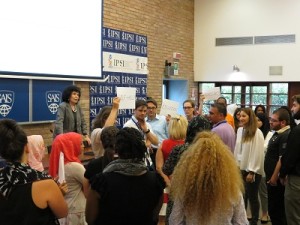 This course is designed to provide an in-depth and multi-disciplinary perspective on the dynamic of civilian-based movements and campaigns that defend and obtain basic rights and justice, halt political oppression and facilitate democratic transitions and accountable governance.
This course is designed to provide an in-depth and multi-disciplinary perspective on the dynamic of civilian-based movements and campaigns that defend and obtain basic rights and justice, halt political oppression and facilitate democratic transitions and accountable governance.
The course examined the nature and attributes of civil resistance, its historical record and effectiveness when compared to that of violent insurgency, factors that determine successes as well as failures of civil resistance, common misconceptions and framing of civil resistance with a specific emphasis on skills, strategic planning and tactics vis-a-vis structural externalities, long-term effects of civil resistance on democratic transformation and sustainability and new, emerging areas of civil resistance studies.
Download event program
Civil Resistance: The Study of Nonviolent Power and Organized People
New York University
February 28-March 2, 2014
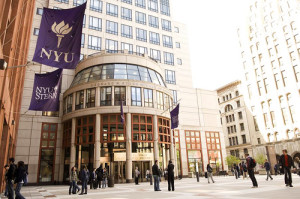 The nonviolent popular uprisings during the ‘Arab Spring’ showed the relevance of civil resistance. Yet, strategic nonviolent conflict is not a new phenomenon. In fact, the use of civil resistance against undemocratic regimes and other illegitimate actors is prevalent over time and space. This seminar will explore the underlying concepts of strategic nonviolent conflict, discuss its effectiveness, particularly vis-à-vis violent insurgency, and how its tactics and strategies are applicable. It will also shed greater understanding on the interplay between civil resistance and third-party actors and role of nonviolent movements in negotiations and democratic transitions, among others.
The nonviolent popular uprisings during the ‘Arab Spring’ showed the relevance of civil resistance. Yet, strategic nonviolent conflict is not a new phenomenon. In fact, the use of civil resistance against undemocratic regimes and other illegitimate actors is prevalent over time and space. This seminar will explore the underlying concepts of strategic nonviolent conflict, discuss its effectiveness, particularly vis-à-vis violent insurgency, and how its tactics and strategies are applicable. It will also shed greater understanding on the interplay between civil resistance and third-party actors and role of nonviolent movements in negotiations and democratic transitions, among others.
Download event program
2013 Academic Seminars
Nonviolent Civil Resistance: Methods of Assisting Peaceful Change
Foreign Service Program, Georgetown University
November 15, 2013
 Over the last 25 years, nonviolent civil resistance movements have played an increasingly important role in shaping nations and geopolitics. From movements in Poland, the Baltic States, East Germany, and Czechoslovakia that ushered in the end of the Soviet Union, to more recent movements in Serbia (2000), Georgia (2003), Ukraine (2004), Lebanon (2005), Nepal (2006), Pakistan (2007), Iran (2009), Tunisia (2011), Egypt (2011) Yemen (2011), and other countries, nonviolent civil resistance has continually surprised experts and defied the expectations of outside observers. It is therefore critical that analysts of international politics better understand these movements, how they emerge and function, their historical record of success, their relationship to democratic gains, and considerations for external actors (i.e. foreign governments, multilateral institutions, INGOs, and other groups) that may interact with them. This clinic considered some of the basic skills and techniques of resistance and civil engagement. Drawing on up-to-date theory, case studies, and quantitative research, this clinic also provided tools and cultivate analytical skills for understanding how civil resistance movements work, the variety of issues around which they emerge, their impact on various countries, and their possible influence on democracy assistance norms and practices. We discussed questions critical to external actors as they consider acting in environments in which civil resistance movements are present. In addition to the presentations and discussion, participants were also introduced to a computer simulation game that allowed them to assume a leadership role in a movement and play-test strategies in a variety of scenarios.
Over the last 25 years, nonviolent civil resistance movements have played an increasingly important role in shaping nations and geopolitics. From movements in Poland, the Baltic States, East Germany, and Czechoslovakia that ushered in the end of the Soviet Union, to more recent movements in Serbia (2000), Georgia (2003), Ukraine (2004), Lebanon (2005), Nepal (2006), Pakistan (2007), Iran (2009), Tunisia (2011), Egypt (2011) Yemen (2011), and other countries, nonviolent civil resistance has continually surprised experts and defied the expectations of outside observers. It is therefore critical that analysts of international politics better understand these movements, how they emerge and function, their historical record of success, their relationship to democratic gains, and considerations for external actors (i.e. foreign governments, multilateral institutions, INGOs, and other groups) that may interact with them. This clinic considered some of the basic skills and techniques of resistance and civil engagement. Drawing on up-to-date theory, case studies, and quantitative research, this clinic also provided tools and cultivate analytical skills for understanding how civil resistance movements work, the variety of issues around which they emerge, their impact on various countries, and their possible influence on democracy assistance norms and practices. We discussed questions critical to external actors as they consider acting in environments in which civil resistance movements are present. In addition to the presentations and discussion, participants were also introduced to a computer simulation game that allowed them to assume a leadership role in a movement and play-test strategies in a variety of scenarios.
Download event program
Nonviolent Conflict as a Means of Achieving Peace
United States Institute of Peace Academic Seminar
November 14, 2013
 This seminar drew on diverse cases, frameworks for action, and up-to-date research findings in the multidisciplinary field of civil resistance studies. Special attention was paid to movements struggling for rights, democracy, and government accountability. The seminar also explored the role of third parties who may interact with or want to assist civil resistance movements and introduce a group exercise around that theme.
This seminar drew on diverse cases, frameworks for action, and up-to-date research findings in the multidisciplinary field of civil resistance studies. Special attention was paid to movements struggling for rights, democracy, and government accountability. The seminar also explored the role of third parties who may interact with or want to assist civil resistance movements and introduce a group exercise around that theme.
St. Andrews Academic Seminar
St. Andrews University
October 23-25, 2013
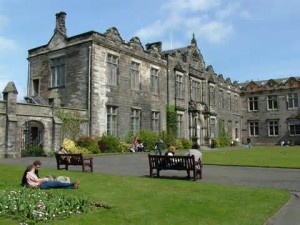 As nonviolent movements around the world increase in number and scope, they are changing whole societies by animating and enlarging civilian-led struggles for human rights, democracy, justice, women’s rights, indigenous rights, transparency (anti-corruption) and environmental protection. Although not all movements are successful, many of them are, and the use of civil resistance has a remarkable record of challenging and displacing obstacles—such as unaccountable government, marginalization, corruption, and violence—to more peaceful societies. It is therefore crucial that practitioners, external actors and conflict analysts have a clear understanding of how civil resistance movements form, what makes them effective, and considerations for interaction with such movements.
As nonviolent movements around the world increase in number and scope, they are changing whole societies by animating and enlarging civilian-led struggles for human rights, democracy, justice, women’s rights, indigenous rights, transparency (anti-corruption) and environmental protection. Although not all movements are successful, many of them are, and the use of civil resistance has a remarkable record of challenging and displacing obstacles—such as unaccountable government, marginalization, corruption, and violence—to more peaceful societies. It is therefore crucial that practitioners, external actors and conflict analysts have a clear understanding of how civil resistance movements form, what makes them effective, and considerations for interaction with such movements.
Download event program
IPSI/SAIS Seminar in Bologna
SAIS Bologna, Italy
July 4-5, 2013
 This short seminar was designed to provide a comprehensive perspective on the dynamic of civilian-based movements and campaigns that defend and obtain basic rights and justice, halt political oppression and facilitate democratic transitions and accountable governance.
This short seminar was designed to provide a comprehensive perspective on the dynamic of civilian-based movements and campaigns that defend and obtain basic rights and justice, halt political oppression and facilitate democratic transitions and accountable governance.
Download event program
Civil Resistance in an Age of People’s Uprisings
Peace Research Institute Olso (PRIO)
May 12-May 14, 2013
 This intensive course was designed to provide an in‐depth and multi‐disciplinary perspective on civilian‐based movements and campaigns that defend and obtain basic rights and justice around the world with the use of nonviolent tactics and strategies‐ from Egypt to Burma, from Zimbabwe to West Papua. We will look, among others, at issues of agency and structure, strategic planning and mobilization, formation, sustenance and dynamics of nonviolent movements, backfire and security divisions, digital actors and tools, negotiations and democratic transitions, role of third party actors and finally, historical and contemporary cases of civil resistance around the world.
This intensive course was designed to provide an in‐depth and multi‐disciplinary perspective on civilian‐based movements and campaigns that defend and obtain basic rights and justice around the world with the use of nonviolent tactics and strategies‐ from Egypt to Burma, from Zimbabwe to West Papua. We will look, among others, at issues of agency and structure, strategic planning and mobilization, formation, sustenance and dynamics of nonviolent movements, backfire and security divisions, digital actors and tools, negotiations and democratic transitions, role of third party actors and finally, historical and contemporary cases of civil resistance around the world.
Download event program
Strategic Nonviolent Conflict: Political Power at the Grassroots
Uppsala University
May 10-May 12, 2013
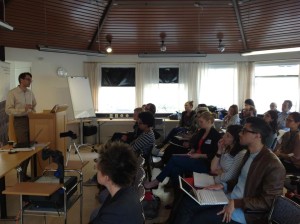 Civil resistance as a practice is centuries-old, but still remains relatively unknown among educators, policy makers, civil society professionals, and the media. This was a three-day series of sessions and discussions that provided an in-depth and multidisciplinary perspective on civil resistance, its nature, dynamics, effectiveness and impact.
Civil resistance as a practice is centuries-old, but still remains relatively unknown among educators, policy makers, civil society professionals, and the media. This was a three-day series of sessions and discussions that provided an in-depth and multidisciplinary perspective on civil resistance, its nature, dynamics, effectiveness and impact.
Download event program
Nonviolent Force to Win Freedoms and Rights: Power and Dynamics of Civil Resistance
Dartmouth College
April 13, 2013
 This one-day seminar explored the use of nonviolent force in the struggle to obtain basic rights and justice through themes such as people’s agency, effectiveness and power of civil resistance, strategic planning and mobilization, impact of third parties and democratic transitions. It also introduced analytical concepts and practical aspects of the strategic use of civil resistance and engages participants in the discussion based on a segment from the documentary A Force More Powerful.
This one-day seminar explored the use of nonviolent force in the struggle to obtain basic rights and justice through themes such as people’s agency, effectiveness and power of civil resistance, strategic planning and mobilization, impact of third parties and democratic transitions. It also introduced analytical concepts and practical aspects of the strategic use of civil resistance and engages participants in the discussion based on a segment from the documentary A Force More Powerful.
ICNC/Rutgers-Newark Online Course
Online
February 18-April 5, 2013
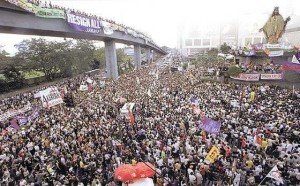 This online course provided an in-depth and multidisciplinary perspective on civilian-based movements and campaigns that defend and obtain basic rights and justice around the world with the use of nonviolent tactics and strategies – from Egypt to Russia, from Zimbabwe to West Papua. We looked at issues of agency and structure, strategic planning and mobilization, formation, sustenance and dynamics of nonviolent movements, democratic transitions and civil resistance, backfire and security divisions, digital actors and tools, role of third party actors and finally, historical and contemporary cases of civil resistance around the world.
This online course provided an in-depth and multidisciplinary perspective on civilian-based movements and campaigns that defend and obtain basic rights and justice around the world with the use of nonviolent tactics and strategies – from Egypt to Russia, from Zimbabwe to West Papua. We looked at issues of agency and structure, strategic planning and mobilization, formation, sustenance and dynamics of nonviolent movements, democratic transitions and civil resistance, backfire and security divisions, digital actors and tools, role of third party actors and finally, historical and contemporary cases of civil resistance around the world.
Skills Institute – People Power: How and Why Civil Resistance Works
American University, Washington, DC
February 8-10, 2013
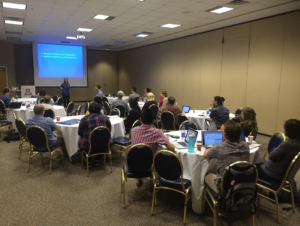 This participatory short course was designed to provide a multi-disciplinary perspective on nonviolent, civilian-based movements and campaigns that defend and obtain basic rights and justice around the world – from Zimbabwe to West Papua, Mexico to China, and throughout the Middle East-North Africa region. Historically, political change in countries that curtail freedom and ignore international human rights norms has been difficult to achieve. Violent revolution or the use of armed force by external actors is typically seen as the primary means of overcoming oppression. Yet people power, relying on a variety of methods of nonviolent action, has been used for this purpose for well over a century in different parts of the world, by different peoples and societies, in different cultures and political systems, and with some impressive results as well as some apparent failures. Furthermore, countries that experience bottom-up, civilian-based resistance are known to have a better track record of successful democratic transitions than the states that initiated their systemic transformation after a protracted civil war, or due to top-down, elite-to-elite negotiations or external military interventions.
This participatory short course was designed to provide a multi-disciplinary perspective on nonviolent, civilian-based movements and campaigns that defend and obtain basic rights and justice around the world – from Zimbabwe to West Papua, Mexico to China, and throughout the Middle East-North Africa region. Historically, political change in countries that curtail freedom and ignore international human rights norms has been difficult to achieve. Violent revolution or the use of armed force by external actors is typically seen as the primary means of overcoming oppression. Yet people power, relying on a variety of methods of nonviolent action, has been used for this purpose for well over a century in different parts of the world, by different peoples and societies, in different cultures and political systems, and with some impressive results as well as some apparent failures. Furthermore, countries that experience bottom-up, civilian-based resistance are known to have a better track record of successful democratic transitions than the states that initiated their systemic transformation after a protracted civil war, or due to top-down, elite-to-elite negotiations or external military interventions.
2012 Academic Seminars
The ICNC/USIP Online Course
Online
October 20 – December 8, 2012
 Civil Resistance and the Dynamics of Nonviolent Conflict is a professional level course developed by ICNC and presented under the auspices of the United States Institute of Peace. This course was designed to provide an in-depth and multi-disciplinary perspective on civilian-based movements and campaigns that defend and obtain basic rights and justice around the world, and in so doing transform the global security environment.
Civil Resistance and the Dynamics of Nonviolent Conflict is a professional level course developed by ICNC and presented under the auspices of the United States Institute of Peace. This course was designed to provide an in-depth and multi-disciplinary perspective on civilian-based movements and campaigns that defend and obtain basic rights and justice around the world, and in so doing transform the global security environment.
Central European University (CEU): Academic Seminar on Power and Dynamics of Civil Resistance
CEU Summer University, Budapest, Hungary
July-9-13, 2012
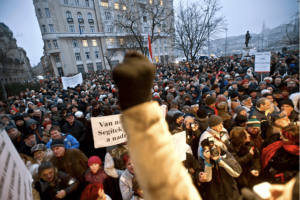 This course was designed to provide an in-depth and multi-disciplinary perspective on civilian-based movements and campaigns that defend and obtain basic rights and justice around the world – from Egypt to Russia, from Zimbabwe to West Papua. Civil resistance, relying on a variety of methods of nonviolent action, has been used for this purpose for well over a century in different parts of the world, by different peoples and societies, in different cultures and political systems, and with impressive results as well as some apparent failures.
This course was designed to provide an in-depth and multi-disciplinary perspective on civilian-based movements and campaigns that defend and obtain basic rights and justice around the world – from Egypt to Russia, from Zimbabwe to West Papua. Civil resistance, relying on a variety of methods of nonviolent action, has been used for this purpose for well over a century in different parts of the world, by different peoples and societies, in different cultures and political systems, and with impressive results as well as some apparent failures.
Download event programs
Nonviolent Force in the Struggle for Change – IPSI/SAIS Bologna
IPSI/SAIS Bologna Center
July-5-6, 2012
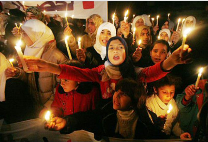 This course explored the use of nonviolent force in the struggle to obtain basic rights and justice through themes such as agency and structure, strategic planning and mobilization, and negotiations and democratic transitions. It also introduced analytical concepts and practical aspects of the strategic use of civil resistance.
This course explored the use of nonviolent force in the struggle to obtain basic rights and justice through themes such as agency and structure, strategic planning and mobilization, and negotiations and democratic transitions. It also introduced analytical concepts and practical aspects of the strategic use of civil resistance.
Nonviolent Civil Resistance Seminar
European Peace University, Austria
June 11-13, 2012
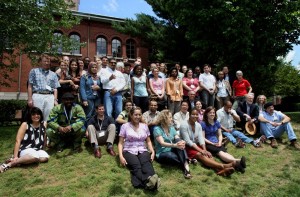 In this seminar we explored the sociology, social history and theoretical bases of civil resistance as it unfolded and became a powerful agent of social change from the twentieth century onwards. We looked at issues of agency and structure, strategic planning, mobilization and cultural framing processes, backfire and security divisions, digital actors and tools, democratic transitions, prevailing misconceptions and case studies of civil resistance around the world.
In this seminar we explored the sociology, social history and theoretical bases of civil resistance as it unfolded and became a powerful agent of social change from the twentieth century onwards. We looked at issues of agency and structure, strategic planning, mobilization and cultural framing processes, backfire and security divisions, digital actors and tools, democratic transitions, prevailing misconceptions and case studies of civil resistance around the world.
People Power in the Struggle for Freedom
The University of Cambridge
May 1-4, 2012
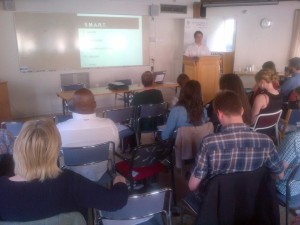 This was a four-day series of sessions and discussions that provide an in-depth and multidisciplinary perspective on civilian movements and campaigns that defend basic rights, accountability, and justice. Thematic sessions included: How Civil Resistance Works, Forgotten History of Civil Resistance, Agency of People and their Collective Actions, Media in Civil Resistance, Sustained People’s Nonviolent Mobilization in Egypt, Movement in Action: Strategies, Tactics and Planning, Civil Resistance and a Violent Flank in South Africa, Woman and Minorities in Civil Resistance, and case studies from the Arab Spring and beyond.
This was a four-day series of sessions and discussions that provide an in-depth and multidisciplinary perspective on civilian movements and campaigns that defend basic rights, accountability, and justice. Thematic sessions included: How Civil Resistance Works, Forgotten History of Civil Resistance, Agency of People and their Collective Actions, Media in Civil Resistance, Sustained People’s Nonviolent Mobilization in Egypt, Movement in Action: Strategies, Tactics and Planning, Civil Resistance and a Violent Flank in South Africa, Woman and Minorities in Civil Resistance, and case studies from the Arab Spring and beyond.
Download event program
ICNC/Rutgers Online Course
Online
April 23-June 5, 2012
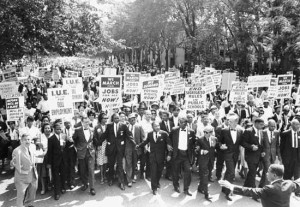 This online course provided an in-depth and multidisciplinary perspective on civilian-based movements and campaigns that defend and obtain basic rights and justice around the world with the use of nonviolent tactics and strategies – from Egypt to Burma, from Zimbabwe to West Papua. We looked at issues of agency and structure, strategic planning and mobilization, formation, sustenance and dynamics of nonviolent movements, democratic transitions and civil resistance, backfire and security divisions, digital actors and tools, role of third party actors and finally, historical and contemporary cases of civil resistance around the world.
This online course provided an in-depth and multidisciplinary perspective on civilian-based movements and campaigns that defend and obtain basic rights and justice around the world with the use of nonviolent tactics and strategies – from Egypt to Burma, from Zimbabwe to West Papua. We looked at issues of agency and structure, strategic planning and mobilization, formation, sustenance and dynamics of nonviolent movements, democratic transitions and civil resistance, backfire and security divisions, digital actors and tools, role of third party actors and finally, historical and contemporary cases of civil resistance around the world.
Power of Nonviolent Action at Rosario University
Rosario University, Bogota, Colombia
April 17-20, 2012
This ICNC course brought up basic analytical concepts and practical aspects of the strategic use of civil resistance. Often times, despite adversarial conditions, civil resistance used by ordinary people against repressive regimes can be very successful. We explored the question why this type of conflict can be successful.
Download event program
Nonviolent Force in Political Change: Power and Dynamics of Civil Resistance
The University of the Basque Country, Bilbao, Spain
March 16, 2012
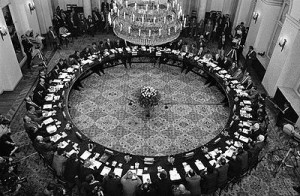 This was a one-day intensive course designed to provide an in-depth and multidisciplinary perspective on civilian based movements and campaigns that defend basic rights, accountability, and justice. We looked at the following issues in civil resistance: History and dynamics of civil resistance; Movement in action: strategies, tactics and planning; Women in civil resistance; Civil resistance in unstable societies; Civil resistance in democracies; Civil resistance and democratic transition; Future research on civil resistance.
This was a one-day intensive course designed to provide an in-depth and multidisciplinary perspective on civilian based movements and campaigns that defend basic rights, accountability, and justice. We looked at the following issues in civil resistance: History and dynamics of civil resistance; Movement in action: strategies, tactics and planning; Women in civil resistance; Civil resistance in unstable societies; Civil resistance in democracies; Civil resistance and democratic transition; Future research on civil resistance.
Power and Dynamics of Civil Resistance
The University of Deusto, Bilbao, Spain
March 13-15, 2012
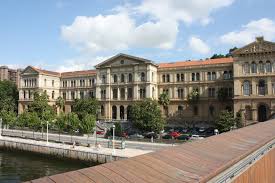 This ICNC course discussed the dimension of political power as exercised strategically by ordinary people. It will covered basic dynamics of civil resistance, strategies and tactics of nonviolent conflict, and presented a number of topics related to the study of civil resistance, such as third party actors, security defections, social media, and democratic transition.
This ICNC course discussed the dimension of political power as exercised strategically by ordinary people. It will covered basic dynamics of civil resistance, strategies and tactics of nonviolent conflict, and presented a number of topics related to the study of civil resistance, such as third party actors, security defections, social media, and democratic transition.
Download event program
Nonviolent Force in Political Change: Power and Dynamics of Civil Resistance
The University of Sydney, Australia
February 20-22, 2012
 This ICNC course introduced to academics and educators general ideas and concepts with regard to strategic nonviolent conflict. It emphasized the importance of a growing field of civil resistance as an emerging new discipline of study. Presented content aimed to provide the academic audience with useful material to develop curricula on civil resistance.
This ICNC course introduced to academics and educators general ideas and concepts with regard to strategic nonviolent conflict. It emphasized the importance of a growing field of civil resistance as an emerging new discipline of study. Presented content aimed to provide the academic audience with useful material to develop curricula on civil resistance.
Download event program
AU Skills Institute
American University, Washington, DC
February 10-12, 2012
 This two and a half day skills institute, offered through American University, was designed to provide a multi-disciplinary perspective on nonviolent, civilian-based movements and campaigns that defend and obtain basic rights and justice around the world.
This two and a half day skills institute, offered through American University, was designed to provide a multi-disciplinary perspective on nonviolent, civilian-based movements and campaigns that defend and obtain basic rights and justice around the world.
Power and Dynamics of Civil Resistance
University of Amsterdam
January 5-8, 2012
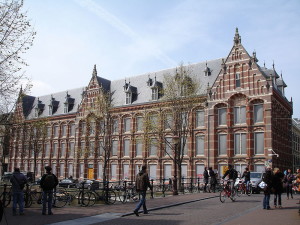 This ICNC course discussed the dimensions of political power that ordinary people can exercise through the use of civil resistance to obtain basic rights and justice, using examples from around the world- from Egypt to Burma, from Zimbabwe to West Papua. It demonstrated how this little understood type of struggle is effective, even against repressive regimes, through topics such as movement formation, backfire and security divisions and digital actors and tools.
This ICNC course discussed the dimensions of political power that ordinary people can exercise through the use of civil resistance to obtain basic rights and justice, using examples from around the world- from Egypt to Burma, from Zimbabwe to West Papua. It demonstrated how this little understood type of struggle is effective, even against repressive regimes, through topics such as movement formation, backfire and security divisions and digital actors and tools.
Download event program
2011 Academic Seminars
Power and Dynamics of Civil Resistance
School of Law, Hong Kong University
October 10-13, 2011
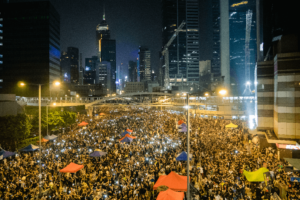 This ICNC course addressed the void of academic study on civil resistance as a tool for ordinary people to achieve basic rights and justice, despite a long history of the practice of civil resistance and strategic nonviolent conflict that goes back at least to the eighteenth century. The course covered numerous topics that contribute to the practice and strategy of nonviolent conflict including third part actors, security defections, social media, and democratic transition.
This ICNC course addressed the void of academic study on civil resistance as a tool for ordinary people to achieve basic rights and justice, despite a long history of the practice of civil resistance and strategic nonviolent conflict that goes back at least to the eighteenth century. The course covered numerous topics that contribute to the practice and strategy of nonviolent conflict including third part actors, security defections, social media, and democratic transition.
Download event program
Academic Seminar on Civil Resistance at Central European University
Budapest, Hungary
September 8-12, 2011
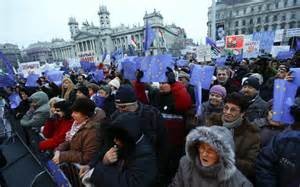 This ICNC course explained the basic analytical concepts and practical aspects of the strategic use of civil resistance- a little understood, but effective tactic that ordinary people can use to obtain basic rights and justice, and even to overthrow repressive regimes. To investigate how such methods are effective, the course explored multi-disciplinary perspectives on civilian based movements and campaigns around the world.
This ICNC course explained the basic analytical concepts and practical aspects of the strategic use of civil resistance- a little understood, but effective tactic that ordinary people can use to obtain basic rights and justice, and even to overthrow repressive regimes. To investigate how such methods are effective, the course explored multi-disciplinary perspectives on civilian based movements and campaigns around the world.
Civil Resistance as a Force for Change and Peace
Virginia Tech University
January 12 – 14, 2011
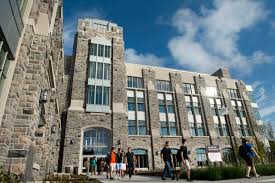 This ICNC academic program is part of a short course entitled, “Non-Violent Civic Action: Negotiations, Strategies and Tactics” that investigates how ordinary people can use civilian-based movements and campaigns to defend and obtain basic rights and justices. It introduced basic analytical concepts and practical aspects of the strategic use of civil resistance.
This ICNC academic program is part of a short course entitled, “Non-Violent Civic Action: Negotiations, Strategies and Tactics” that investigates how ordinary people can use civilian-based movements and campaigns to defend and obtain basic rights and justices. It introduced basic analytical concepts and practical aspects of the strategic use of civil resistance.
2010 Academic Seminars
EMUNI/ICNC – Power and Dynamics of Civil Resistance
Ljubljana, Slovenia
November 8-12, 2010
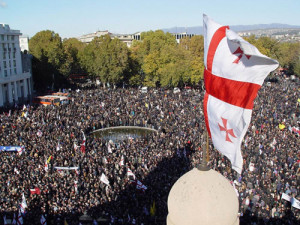 This ICNC course discussed the dimension of political power that ordinary citizens can strategically exercise to defend their rights and obtain justice, even against repressive regimes. It covered the basic dynamics of civil resistance, strategies and tactics of nonviolent conflict and present other topics related to the study of civil resistance.
This ICNC course discussed the dimension of political power that ordinary citizens can strategically exercise to defend their rights and obtain justice, even against repressive regimes. It covered the basic dynamics of civil resistance, strategies and tactics of nonviolent conflict and present other topics related to the study of civil resistance.
Download event program
USIP/ICNC Course: Civil Resistance and the Dynamics of Nonviolent Conflict
United States Institute of Peace, Washington, DC
October 19 – December 9, 2010
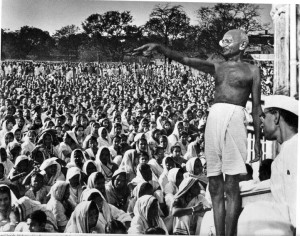 This is a professional level course developed by ICNC and presented under the auspices of the United States Institute of Peace. This course is designed to provide an in-depth and multi-disciplinary perspective on civilian-based movements and campaigns that defend and obtain basic rights and justice around the world, and in so doing transform the global security environment.
This is a professional level course developed by ICNC and presented under the auspices of the United States Institute of Peace. This course is designed to provide an in-depth and multi-disciplinary perspective on civilian-based movements and campaigns that defend and obtain basic rights and justice around the world, and in so doing transform the global security environment.
ICNC Seminar on Teaching Civil Resistance
Ramallah, West Bank
October 14 – 16, 2010
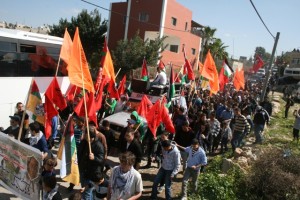 The ICNC Seminar on Teaching Civil Resistance is an educational seminar for local scholars and civil society actors that will introduce the strategic use of nonviolent conflict to assist in developing curricula on civil resistance. It will emphasize the importance of the growing field of civil resistance as an emerging, and incredibly important area of study.
The ICNC Seminar on Teaching Civil Resistance is an educational seminar for local scholars and civil society actors that will introduce the strategic use of nonviolent conflict to assist in developing curricula on civil resistance. It will emphasize the importance of the growing field of civil resistance as an emerging, and incredibly important area of study.
Download event program
Academic Teacher Workshop (Global)
Istanbul, Turkey
July 25-27, 2010
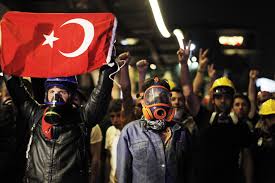 As part of its education mission, ICNC is organizing a two-day academic training for international college and university instructors, faculty members and doctoral students on teaching and studying the subject of civil resistance.
As part of its education mission, ICNC is organizing a two-day academic training for international college and university instructors, faculty members and doctoral students on teaching and studying the subject of civil resistance.
Download event program
Council of Europe Summer University: Three ICNC Sessions on Civil Resistance
Strasbourg, France
June 28-30, 2010
 The 5th Summer University for Democracy, a gathering of 600 political leaders, civil society activists, journalists and business leaders met to discuss “crises of leadership.”
The 5th Summer University for Democracy, a gathering of 600 political leaders, civil society activists, journalists and business leaders met to discuss “crises of leadership.”
Download event program
Academic Teacher Workshop (North America)
Emory Conference Center, Atlanta, GA
May 21-22, 2010
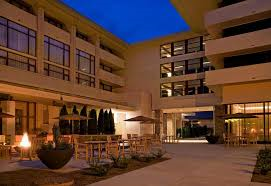 As part of its education mission, ICNC organized a two-day academic training for North American college and university instructors, faculty members and doctoral students on teaching and studying the subject of civil resistance.
As part of its education mission, ICNC organized a two-day academic training for North American college and university instructors, faculty members and doctoral students on teaching and studying the subject of civil resistance.
Download event program
